“I’d like to tell you just where I’m from,
In the hills where the trees grow wild with weed fields.”
—“Dr. Greenthumb” lyrics, Cypress Hill
Long before many of today’s cannabis entrepreneurs even knew what OG Kush was, West Coast hip-hop group Cypress Hill was dropping tracks celebrating the plant and the culture that surrounds it. Frontman B-Real’s distinct nasal pitch and stoned aesthetic made the group’s music instantly recognizable both in clubs and on the streets. The group has produced multiple platinum albums over the past thirty years, racking up critical acclaim and numerous Grammy nominations for their work. Cypress Hill also introduced the Dr. Greenthumb character, B-Real’s alter ego, as an amusing skit that since has morphed into an eponymous retail experience and products brand.
Whether performing with Cypress Hill or leading corporate efforts for the brand, B-Real, born Louis Mario Freese, has remained defiantly true to the plant as cannabis transformed from an underground community of connoisseurs and advocates into a multibillion-dollar legal industry spanning the majority of the United States.
As deep-pocketed investors and corporate players flood into the industry, it can be easy to forget how the culture once looked. However, a handful of OGs like B-Real are forging ahead, respecting history while building brands that authentically connect with consumers across all legal demographics. Whether they visit a Dr. Greenthumb store or smoke flower branded Insane or Dr. Greenthumb, the culture is an integral part of the experience. B-Real and his team carefully curate everything from store design to how the brand uses its clout to elevate legacy producers and small farms looking to thrive in an increasingly corporate landscape. Importantly, the approach is succeeding in a crowded field where many better-funded new players have tried and failed.
Today, at 52, B-Real—B to his friends—is an elder statesman in the hip-hop realm, and he and Cypress Hill continue to sell out live shows. He’s also increasingly celebrated for his expanding cannabis enterprise, DGT Worldwide, in which he takes a very active role. B and the brand bridge the gap between legacy culture, music, apparel, and the notion “there is strength in being unapologetically you.” The Insane and Dr. Greenthumb brands are available in more than 100 California retail stores from San Diego to Santa Rosa, including six Dr. Greenthumb stores. A seventh Dr. Greenthumb location is under development in Oxnard, California, and the brand plans to expand into Michigan and Massachusetts in late 2022.
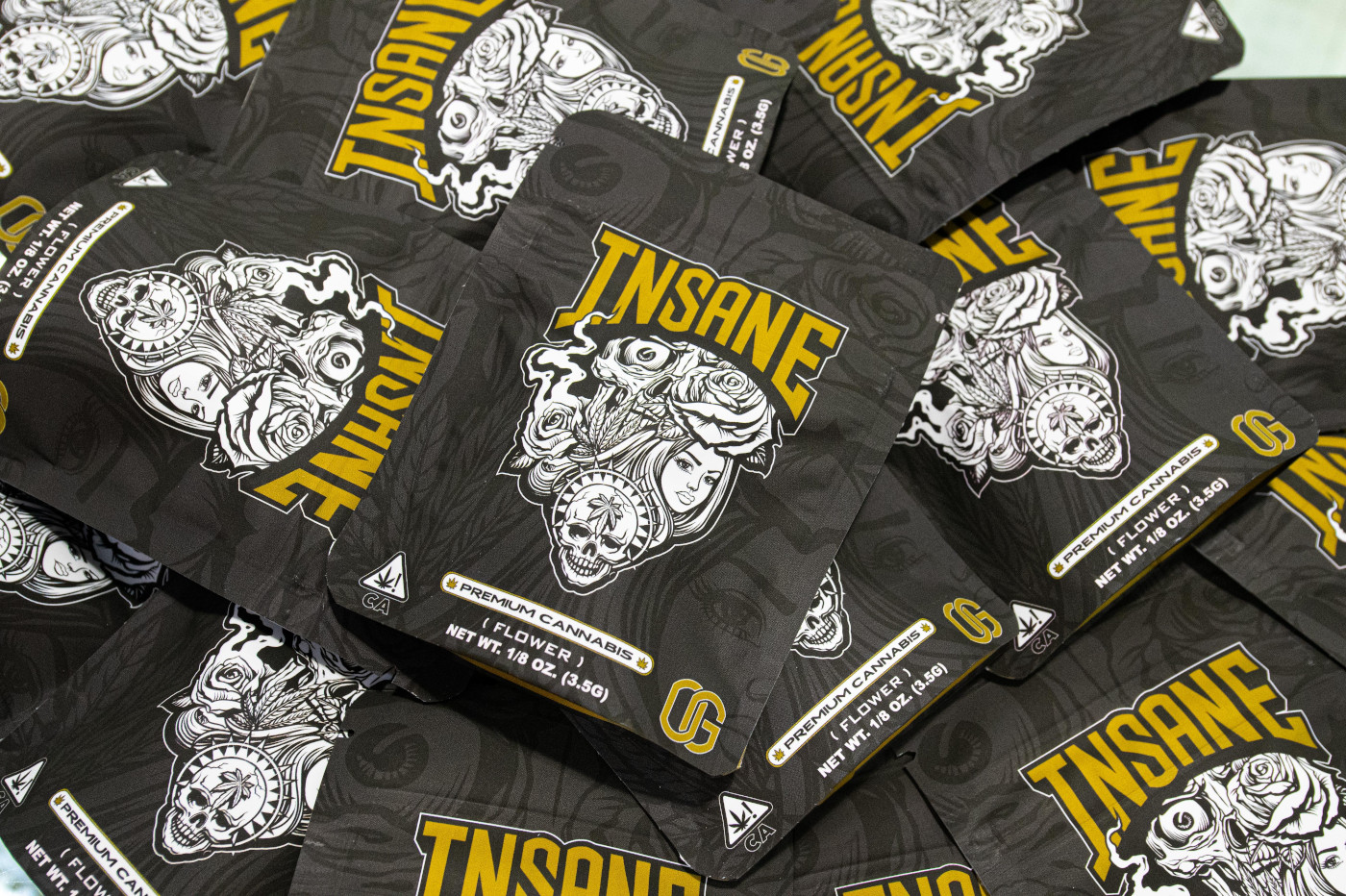
Who do Insane and Dr. Greenthumb target?
Our Insane brand is curated for the hardcore, legacy, and street-connected smokers—people who care so much their friends might even call them “insane.” The who and the why matter just as much as the what, or maybe even more.
Our other line, Dr. Greenthumb, offers a nostalgic, fun, and free vibe. Dr. Greenthumb consumers remember the culture, the experiences, and the feelings around weed from a time when Cypress Hill was part of a soundtrack to their life; when weed was illegal but somehow felt more wholesome and honest than it does today. Their story tells it all. They are Dr. Greenthumb; they helped create this wave. Of course, we welcome all new generations, just like the 1960s invited people of the 1980s and 1990s to join them through Hendrix or Joplin.
The California market is like no other, from market size to product quality and innovation. Unfortunately, California operators also face some outsize challenges, with a punitive tax structure and onerous regulations that penalize legal businesses while allowing illicit operators to thrive. What’s your secret to succeeding in such a challenging environment?
A couple of things here, really. Yes, the tax structures are intense. Hopefully the cultivation tax holiday [AB-195, which went into effect July 1] starts a trend of fair taxation for cannabis, because we certainly aren’t getting fair representation for all that tax collected. In terms of succeeding, that’s always in the definition. I’ve tried to ensure my team knows what we are fighting for in terms of culture, legacy, and increased access. As long as we’re in the game, we are succeeding.
Every day we hear about yet another actor, athlete, or entertainer adding a new celebrity-driven brand to the industry. Not all of those brands or collaborations are going to succeed. From your perspective, what are the key elements of a successful celebrity/brand collaboration?
A cannabis brand collab with a celebrity is no different than Patrick Mahomes appearing in insurance company ads or Michael Jordan’s endorsement with Hanes shirts. When brands are that big and have recognized core values, collaborating on products or overall branding makes sense. We’ve seen this type of environment across clothing, bikes, skateboards, and more.
In other cases, the product or brand itself may carry the celebrity’s name. Now, I know not all the people cashing in were out there advocating for cannabis access. Some of them may not even have been publicly smoking. That’s their call on how they want to do things.
My track record, the people I work with, nobody out there needs to wonder where we stand—where we’ve always stood. It’s not up to me if we make it, though. It’s up to customers in the end. What types of people do they want to support? Do they want to support us, or do they want to support the other brands that are just cashing in?
I’m sure people pitch collaborations to you all the time. Share with us what brand collabs look like from the celebrity perspective. What types of pitches catch your eye? What do businesses need to consider before approaching a celebrity?
Some celebrities don’t have their own cannabis brands or businesses, so they may be wide open. For those of us with our own thing going on, someone coming up and pitching a collab on something like a store, that doesn’t make sense for me since I’m already in that space with our Dr. Greenthumb stores.
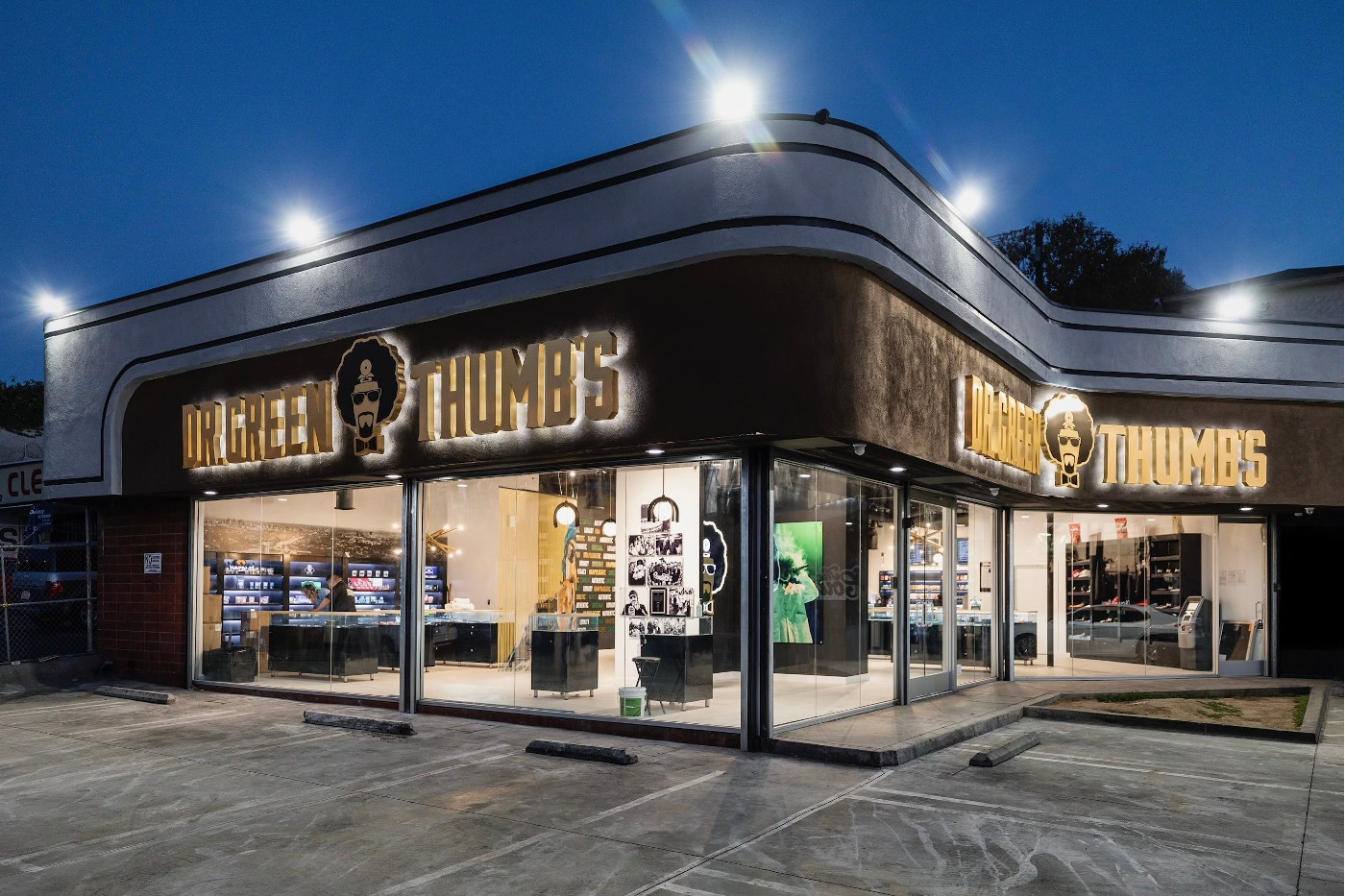
People also should make sure the product or brand aligns correctly with the celebrity. Sometimes you get pitched things that just don’t make any sense, and you wonder if the company even knows who you are and what you’ve been doing for thirty-plus years.
You’re thoughtful about how you use your celebrity power to elevate your brand. What experience do you want your customers to walk away with that is completely unique to Dr. Greenthumb?
One of the main things I want people to walk away with is the knowledge that power resides in the people. It doesn’t matter if the industry is telling you not to make that type of music, or if someone is saying liberty over your own body is not your own right, or only a certain kind of person should be able to make money from cannabis. I didn’t listen, and I don’t give a shit what they say. Neither should you.
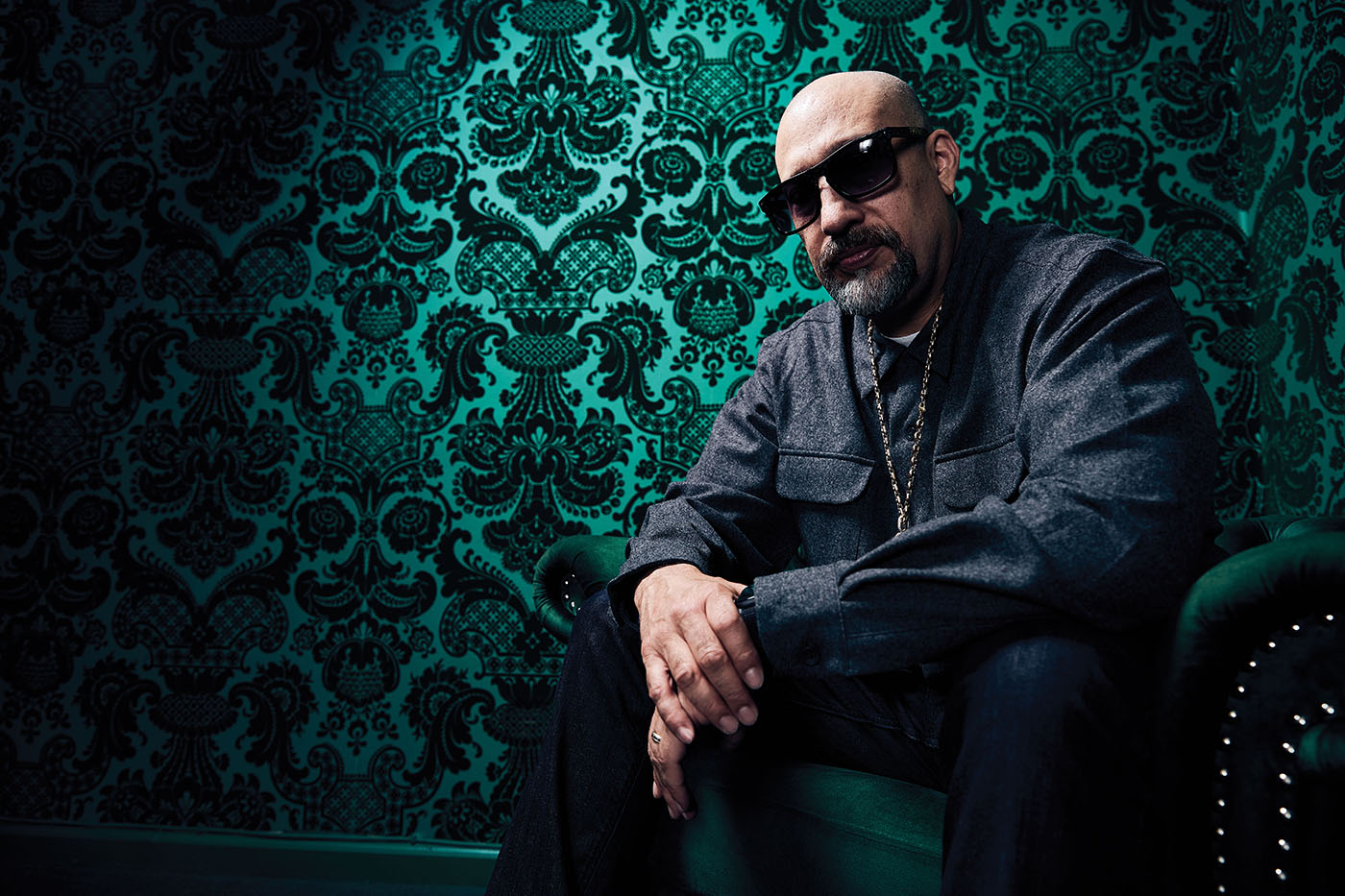
What advice would you give to other celebrity-driven brands trying to achieve the kind of success you’ve attained?
I don’t think I’m in a position to give advice to people, per se, in that regard. I just find it important to spend time with my team, tell stories, and let them see and hear all the things that have mattered to me. The more I can do that, the better we can deliver parts of my life and experiences.
Cypress Hill shows are something that connects me and our musical messages to events everyone has felt or participated in. You may not have seen Cypress Hill perform, but you’ve seen someone else, and when you hear our music or see images of our show, you know the feeling. You can understand the energy and passion and work that’s gone into it. Authenticity counts, and it’s the most difficult thing for many brands to accomplish.
Earlier this year, you launched a product line featuring flower sourced from licensed small-batch cannabis farms. The packaging includes a QR code with information about the cultivator, in an effort to build transparency and customer connection. What did you learn from that approach?
I love this part of Dr. Greenthumb. We actually are working with our stores and our service partners to help broadcast this message more. We saw a lot of views and engagement, but there are many brands out there linking to all sorts of random items via QR, so people are a bit overwhelmed. When we get our team engaged and people see the content, they love it. There’s always work to be done, that’s for sure, but the product has been well-received.
We’ve heard you’re exploring new markets. Which ones are you investigating? What’s piquing your interest?

We have a great opportunity in the Boston Metro area, which we really like for a store. We’ve always done well in that area for music, and a couple of the people on my team have ties to that area of Boston, so I think it will be a lot of fun. Hopefully we’re well-received when we open there later this year.
Also, a bunch of the team just got back from Michigan, where we toured fifteen candidate farms and have some good things on deck as well. I love the Michigan market because of the smoke, big smokers and breeders, and a lot of people who have been doing what my squad was doing out here in California for all those years. There is a very real legacy vibe being fought for up there, and you already know what side of that fight I’m on.
The legal adult-use industry launched during a period of strong economic growth and high consumer confidence. Cannabis was further bolstered by its essential designation during pandemic lockdowns. But now, the playing field is shifting. Inflation is changing consumer habits and a recession seems more likely than not. Do you think this industry is recession-proof?
To the degree alcohol is recession-proof, I feel like cannabis is similar. Now, I don’t mean beer and wine brands and stores don’t go out of business, because it happens all the time. There are a lot of brands, stores, and grows that will go out of business during this shift in the economy.
Obviously, at Dr. Greenthumb we are working hard to be on the other side of this. If we can help other legacy brands and folks hold on while some of the purely speculative, investor-type companies fall, I’m down with that, too.




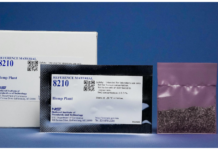


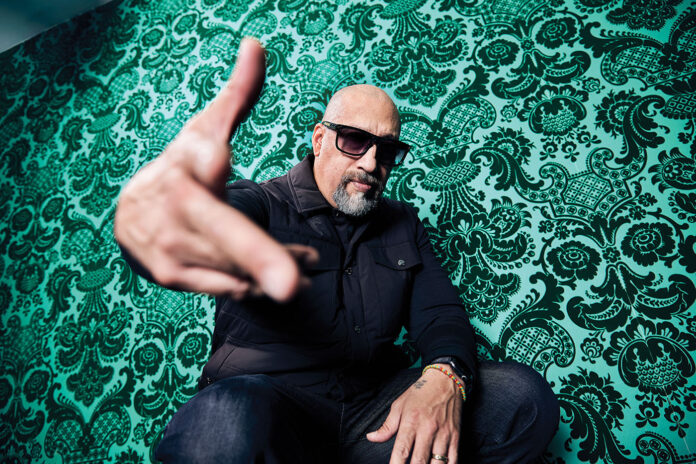


[…] arriving early to find a remote location cluttered and littered with dirty dishes. By the time cover subject B-Real arrived, no one was the wiser. Pursuing one of his first assignments for mg, photographer Josh Sep […]
[…] vintage lowrider displays, VIP gift bags, and celebrity appearances including legendary rapper B-Real of Cypress Hill and actor/comedian Cheech […]